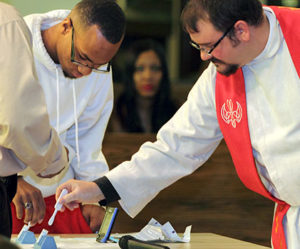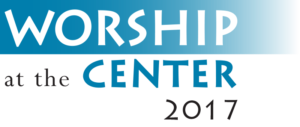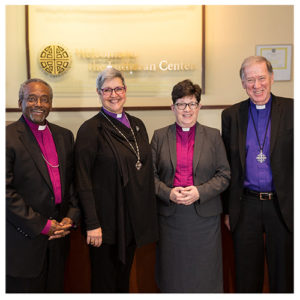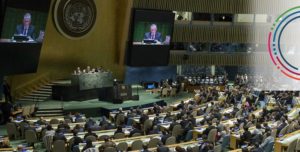Scott A. Moore, Erfurt, Germany
Warm-up Question
What do you need to do in order to get ready for school (or a trip)?
Change is Coming
 Once again we are in the weeks leading up to a transition of administrations. There are many situations a new, inexperienced White House staff will encounter in the weeks and months to come. Press releases, motorcades, and the State of the Union address are some of the easier ones. The President, Vice-President, and others in the White House need to be prepared for any and everything. The two last presidents had to deal with crises in their respective first years of office that no one could have known would happen. For President Bush, it was 9/11 just nine months after taking office and for President Obama, there was a Swine flu outbreak and Somali pirates.
Once again we are in the weeks leading up to a transition of administrations. There are many situations a new, inexperienced White House staff will encounter in the weeks and months to come. Press releases, motorcades, and the State of the Union address are some of the easier ones. The President, Vice-President, and others in the White House need to be prepared for any and everything. The two last presidents had to deal with crises in their respective first years of office that no one could have known would happen. For President Bush, it was 9/11 just nine months after taking office and for President Obama, there was a Swine flu outbreak and Somali pirates.
Preparing for pirates was not on anyone’s agenda, but the Obama administration was able to respond to the flu outbreak because President Bush’s team had prepared them with their experiences learned from dealing with the Avian flu a few years earlier. Aside from such catastrophes and all the various natural disasters that can happen, each administration needs to be adequately prepared for major cataclysmic events such as nuclear war. This is also something the White House teams will practice in the coming months so that should anything happen, the President and his team will be able to continue to provide the necessary leadership.
Discussion Questions
- What do you think is most difficult part about being the president in a time of crisis?
- When is information from the White House in such times of crisis “too much”?
- When have you looked to the leadership of someone in a time of crisis (president or otherwise)?
- What would you want to know in the event of major cataclysm: meteor crashing to earth, terrible unstoppable plague, nuclear war, … zombie apocalypse?
First Sunday of Advent
Isaiah 2:1-5
Romans 13:11-14
Matthew 24:36-44
(Text links are to Oremus Bible Browser. Oremus Bible Browser is not affiliated with or supported by the Evangelical Lutheran Church in America. You can find the calendar of readings for Year B at Lectionary Readings
For lectionary humor and insight, check the weekly comic Agnus Day.
Gospel Reflection
Happy New Church Year! The first Sunday in Advent (from Adventus=coming). It is a time of getting ready for the joy of Christmas. Longer and cooler nights for us in the Northern hemisphere mean a chance to get cozy and start thinking about the beautiful decorations, the sharing of good food and gifts, and what in the heck is this text doing here? Why on earth would we want spoil the mood before it really gets going with this? Jesus talking about all the destruction of the Great Flood is a serious downer. And, if Jesus thinks he will lift our spirits by sharing with us that the Son of Man coming again will take some and leave others standing, he is sorely mistaken. Okay, the hearers of this text have an advantage over those in the time of Noah. Whoosh, rain and floods and destruction were sent without any real warning. This time around there is a warning: be ready! The Son of Man is coming—like a thief in the night. Advent is a big yay for Jesus coming as a cute little baby, the big Word of God in a tiny bit of flesh; and it’s a big uh oh for Jesus coming again at some point in the future. We are on pins and needles if we think on it and sit with it.
So if we take Jesus’ promise in this text seriously, we need to be prepared. How do we do that? What does it mean for us to be awake and aware and ready for when Jesus comes? It has been about 2,000 years since these words of Jesus were shared. If it hasn’t happened now, should we really worry that it’s going to happen in our lifetimes? This text calls us to vigilance. It is exactly that kind of “it’s not going to happen anyway” thinking that this text wants to prevent. We can’t sleep—in the spiritual awareness kind of way. At the same time, we can’t get caught up in trying to predict the signs because this text (and others like it) tell us: like a thief in the night. We just don’t know. The angels in heaven don’t know. The Son doesn’t even know. We will never be able to predict it so we shouldn’t bother with that. Our energy is not to be spent on figuring out when Jesus is coming but figuring out how to be ready.
Discussion Questions
- How do you get ready for Jesus’ coming? And, how do you stay ready?
- What does it mean for you when you recite the words of the Creeds, “he is seated at the right hand of the Father, and he will come to judge the living and the dead.”?
- “Advent” means coming. How do you experience God coming each day?
Activity Suggestions
Fire Drill:
Walk through the fire drill plan for your location. Maybe even walk through to the other classrooms and ask them if they know their fire escape routes. Learning to be ready in every day situations can help raise awareness for the spiritual kind of readiness talked about in the Gospel reading for the day.
Closing Prayer
Reflect on the following poem and then join in the responsive prayer. How does this poem change how you see God coming and our preparation for that coming?
Making the House Ready for the Lord
Dear Lord, I have swept and I have washed but
Still nothing is as shining as it should be
for you. Under the sink, for example, is an
uproar of mice—it is the season of their
many children. What shall I do? And under the eaves
and through the walls the squirrels
have gnawed their ragged entrances—but it is the season
when they need shelter, so what shall I do? And
the raccoon limps into the kitchen and opens the cupboard
while the dog snores, the cat hugs the pillow;
what shall I do? Beautiful is the new snow falling
in the yard and the fox who is staring boldly
up the path, to the door. And still I believe you will
come, Lord: you will, when I speak to the fox
the sparrow, the lost dog, the shivering sea-goose, know
that really I am speaking to you whenever I say,
as I do all morning and afternoon: Come in, Come in.
–Mary Oliver–
Closing Prayer (from ELW Evening Prayer)
Leader: The Spirit and the church cry out:
All: Amen. Come, Lord Jesus.
Leader: All those who await his appearance pray:
All: Amen. Come, Lord Jesus.
Leader: The whole creation pleads:
All: Amen. Come, Lord Jesus.



 future. This year marks 35 years since the first reported case of what would come to be known as AIDS in the United States by the Centers for Disease Control. Since that time, we have learned much more about effective treatment and prevention. However, there is much progress to be made. HIV continues to affect many in our communities and throughout the world, including more than 1.2
future. This year marks 35 years since the first reported case of what would come to be known as AIDS in the United States by the Centers for Disease Control. Since that time, we have learned much more about effective treatment and prevention. However, there is much progress to be made. HIV continues to affect many in our communities and throughout the world, including more than 1.2






